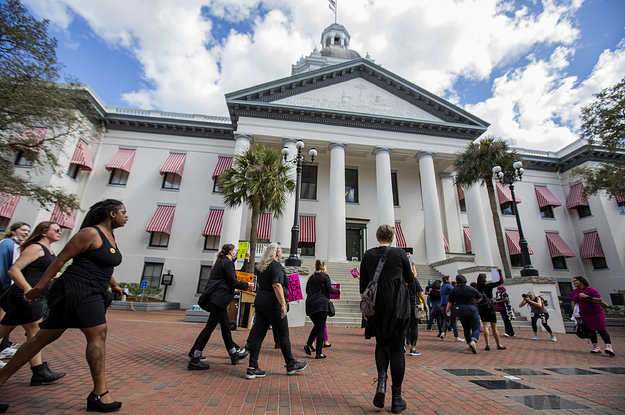Recent court battles over mifepristone, an abortion pill, have been making headlines. A federal appeals court ruled that the pill can remain on the market with new restrictions while legal cases continue. In response to a proposed six-week abortion ban in Florida, Democratic lawmaker Lauren Book was arrested during a protest outside the state Capitol. Book believes that the ban disregards the pleas of women and doctors, and that it will lead to the loss of women’s rights and access to life-saving healthcare. The bill also allocates funds to anti-abortion pregnancy centers, which Planned Parenthood warns are run by activists with harmful agendas.
Planned Parenthood has raised concerns about the lack of privacy and misinformation provided by these centers. Laura Goodhue, the executive director of the Florida Alliance of Planned Parenthood Affiliates, stated that people who mistakenly sought help from these centers have been lied to about their pregnancy’s development and given false information about the safety of abortion and birth control. They have even reported having their relatives, partners, or employers contacted to intimidate them out of getting an abortion. However, despite these concerns, the amendments proposed by Democratic representatives in the House, including additional exceptions and financial audits of the centers, did not pass.
Abortion advocates argue that if the bill becomes law, it will disproportionately affect rural communities, low-income individuals, people with disabilities, and people of color. Diamond Delancey, manager of the Black Organizing Program at Planned Parenthood, highlights the devastating impact the bill would have on Black and Brown communities, which already face barriers to accessing healthcare and are more likely to die during childbirth. Jamarah Amani, the executive director of the Southern Birth Justice Network, also emphasizes the message it sends during Black Maternal Health Week, stating that it undermines the rights and dignity of pregnant individuals and their families.
Amani, who identifies as a Black woman with a history of ancestors being enslaved and forced to breed, asserts that her body and choices are hers, not the government’s. The passage of this bill raises concerns about the government’s power over the bodily autonomy of Floridians and those in the South who rely on the state for reproductive care. The battle over mifepristone and abortion rights continues to be a contentious issue, with advocates fighting to protect women’s rights and access to safe healthcare.









